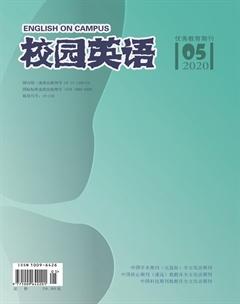Africa: a Land not with Remoteness but Global Cooperations Practices of NGO Sasakawa Africa Association (SAA)
Guohuibin Li
Africa, a remote and mysterious continent, has known as a barren land to many people. Except for the savanna scenery teeming with zebras, rhinoceroses, lions, Africa is one of the central places where the international community has fought against a set of server natural and social problems which are vital for humankind to survive during the past decades.
According to one statistic, Africa is the hottest continent on earth and 60% of the entire land surface consists of drylands and deserts; Africa is also the world second most populated continent (1.1 billion people as of 2013), accounting for about 15% of the entire population in the earth (Wikipedia, n.d.). It is, thus, not difficult to envisage how harsh and critical to feed a larger number of settling people under the particularly rough environment. Moreover, social, political and religious conflicts or unsets also play a role in hindering the majority of African countries towards the way of the long term development. For example, terminologies that are immoral and unethical, such as segregation, race carnage, and colonialism, can be particularly found within this region.
Fortunately, there are some NGOs currently working in Africa, who try to help Africans to fight against prominent problems in terms of poverty, hunger, HIVS, etc. Embracing the philosophy of “take it to the farmer,” Sasakawa Africa Association (SAA), one of the NGOs registered at Geneva, Switzerland in 1986, aims to forester a more food-secure rural Africa with increasing numbers of prospering smallholder commercial farmers (Tokusue 2016). In general, SAA endeavors to transform African extension advisory services in partner countries to secure higher family food and more active and profitable participation in commercial activities along with the value chain with a unique focus on respecting natural resources.
Specifically, SAA carries out a strategic goal - to establish cost-effective farmer learning platforms that improve productivity in smallholder food systems, especially for resource-poor women farmers and those with low levels of technical skills, to increase food security and livelihoods. The fact of the African agriculture industry features few types of machinery employees in farming even today, so how to integrate modern technologies into farmers daily works is essential.
Moreover, as a more substantial proportion of crop wasted due to inappropriate storage methods, farmers demand more scientific and realistic tactics to preserve the harvest. Besides, by strengthening agricultural extension systems by building the capacity of extension professionals, smallholder farmers, regional and global markets, the ultimate goal of establishing a robust value chain, benefiting the local citizens in a longer run, is expected to be met. With empowering smallholder farmers to capture a larger proportion of the economic benefits from the value chain, farmers will not only get the immediate financial gains through the so-called “Group Working System,” but also can voluntarily conduct the extra work for their living.
Also, noting the potential of IT, SAA plans to establish information and knowledge management information systems that enable adaptation, modification and change of technologies and approaches, improve efficiency and impacts, and communicate lessons and best practices for timely evidence-based decision-making. From this perspective, the role of SAA is analogous to the “extension agent”: they not only to assist smallholder farmers in the area of crop production, post-harvest, and marketing but also to create training opportunities that bring essential business skills to the farmers.
As one dictum claims that “Give a man a fish, he will eat for a day; teach him to fish, he would never go hungry.” SAA exemplifies this philosophy at a pinpoint and further proposes a critical question to the global community on how to cooperate with the local for the seek of both ecnnomic and envirmental gains in Africa.
References:
[1]Africa. (n.d.). In Wikipedia[OL]. Retrieved December 16,2016. from: https://en.wikipedia.org/wiki/Africa#Climate.
【作者簡介】李国惠斌(1993.04-),男,汉族,新疆人,自媒体人(留学申请),研究生,研究方向:科技创新政策与区域文化对比。

